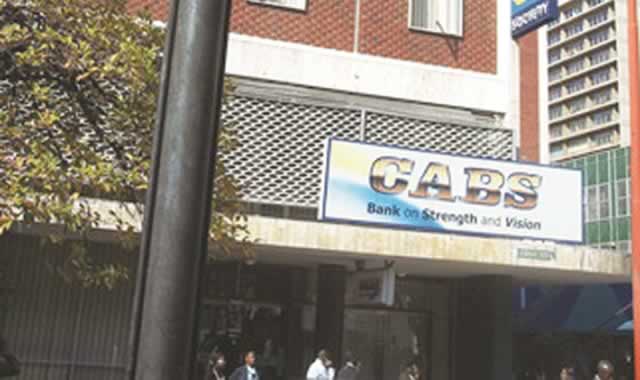CABS reviews cross-border payment model

Senior Business Reporter
CABS will, beginning next month, process all cross border payments destined for countries whose currencies are freely tradable on the international foreign exchange market in the currency of the receiving country.
The bank said the move was adopted in light of several delays the institution was experiencing in meeting cash requirements due to the prevailing macro-economic situation.
In recent weeks, the local financial services sector has been hit by a cash shortage with the Reserve Bank of Zimbabwe urging the transacting public to use plastic money as the country does not print or control foreign currency.
Zimbabwe has been faced by a tight liquidity situation since February 2009 when the multicurrency system was introduced to tame hyperinflation.
In a statement, CABS managing director Simon Hammond said payments to Sadc countries other than South Africa can also be paid in South Africa rand through the Sadc Regional Electronic Settlements System (SIRESS).
“We would like to thank you for bearing with us during the past weeks as we have faced a number of delays in meeting your cash requirements as well as in settling International payments.
“We’re working to address the situation and are putting measures in place to address the issues. In line with this, from 1st of June 2016 all cross border payments which are destined for countries whose currencies are freely tradable on the international foreign exchange markets, will be settled in the currency of the destination or receiving country,” he said.
“As such, we will require that all invoices presented as supporting documents for cross border payments be in the relevant currency of the country from which the invoice has been issued.”
Currently, Hammond said, the bank was able to clear currencies that include the United States dollar, South African rand, British pound, Euro and the Botswana pula.
“We further advise that payments to Sadc countries, other than South Africa, can also be paid in South Africa rand through the Sadc SIRESS, which is a more efficient payment system.
“In the circumstances, we encourage you to consider this option for payments destined for the Sadc region, by being invoiced in South Africa rand,” he said.
He said countries presently on SIRESS platform are South Africa, Namibia, Zimbabwe, Zambia, Malawi, Lesotho, Swaziland, Mauritius and Tanzania.
“For local payment transactions, we would like to encourage you to make use of your CABS cards on POS machines deployed countrywide as well as our mobile and Internet banking,” said Hammond.











Comments